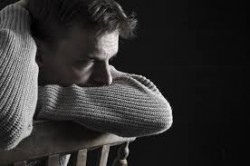5 Signs You Need Help for Opiate Addiction
Opiate addiction is a chronic relapsing brain disease that, despite the initial exposure and reasons for continuing use of opiates, it causes significant physiological changes in the person that makes it difficult for them to stop on their own.
We can help you find addiction treatment for yourself or a loved one. Call 800-584-3274 toll free for help today.
Some of the possible signs that you need help for opiate addiction include:
1. Opiate Dependence
In general, opiate dependence is the state of needing or depending on opiates for support to function or survive. According to the World Health Organization, “dependence refers to both physical and psychological elements.”
Physical dependence begins with tolerance and tolerance begins with the first dose of opiates. With repeated use, the brain becomes adapted to the presence of opioids and alters the way it responds when they are not present through opiate withdrawals. Psychological dependence refers to the cravings and compulsions to use opiates to feel good or to avoid feeling bad.
It is possible to become dependent on opiates and not become addicted. The difference is the uncontrollable and compulsive use in the face of adverse consequences.
2. Withdrawals

If you are physically and/or psychologically dependent on opiates you have a strong risk for addiction.
Opiate withdrawals are generally not considered life-threatening, but, for many, they can certainly appear that way and for those who have compromised physical or psychological health issues, the dangers do exist. While there are some commonalities, the severity, duration, and complexities of opiate withdrawals are unique to every user. You need help for opiate addiction to get through the detox phase and continue your motivations for recovery.
3. Relapse Risks
Opiate addictions are associated with high rates of relapse. The adaptations that take place in the person’s cognitive and behavioral functioning have been motivating factors to the use of opiates. Cravings can last for months or years and many will relapse multiple times after attempting to cease use. Since detox is insufficient in maintaining opiate abstinence for any foreseeable long term, you need help for opiate addiction to change the possibilities of relapse.
We can help you find opiate addiction treatment. Call 800-584-3274 toll free today.
4. Adverse Physical Consequences From Opiate Use
You need help for opiate addiction because continued use can compromise your health in many ways. Beyond the potentials for overdose, communicable diseases, infections, or abscesses from IV use, long term and chronic use of opiates can significantly damage vital organs including the liver, heart, lungs, brain, kidneys, and immune system. Physical deteriorations will continue and only get worse with repeat intoxications, withdrawals, and unhealthy habits.
5. Adverse Psychological Consequences From Opiate Use
A person who becomes addicted to opiates may begin to neglect alternative interests and pleasures in pursuit of seeking, obtaining, and using the drugs, despite harm or adverse consequences to themselves or others. Perhaps the psychological consequences of addiction are the most difficult to overcome.
You need help for opiate addiction where you can learn strategies and skills to cope with the cravings and manage the influential factors in your life that would “trigger” use. Making positive changes is the only path to recovery.
 Coping with Addiction to Prescription Drugs -
Prescription drug usage and abuse rates in the US have skyrocketed in recent years. Addiction to prescription drugs is an increasing problem, but there are ways to cope with it.
Coping with Addiction to Prescription Drugs -
Prescription drug usage and abuse rates in the US have skyrocketed in recent years. Addiction to prescription drugs is an increasing problem, but there are ways to cope with it.  Opium Addiction is No Different from Opioid Addiction -
There are treatment centers geared specifically to treat both opium and opioid addiction syndromes.
Opium Addiction is No Different from Opioid Addiction -
There are treatment centers geared specifically to treat both opium and opioid addiction syndromes.  Signs of Opiate Addiction -
Knowing what the signs of an opiate addiction are can help you get the help you need, or help a loved one seek treatment.
Signs of Opiate Addiction -
Knowing what the signs of an opiate addiction are can help you get the help you need, or help a loved one seek treatment.  What your Mother Never Told You About Opiate Addiction -
Opiate addiction can destroy your life, taking away your happiness and everything that's important to you.
What your Mother Never Told You About Opiate Addiction -
Opiate addiction can destroy your life, taking away your happiness and everything that's important to you.  Why Is It So Hard to Overcome Drug Cravings When Recovering from Opium Addiction? -
Opium addiction creates chemical imbalances in the brain that take time and effort to restore.
Why Is It So Hard to Overcome Drug Cravings When Recovering from Opium Addiction? -
Opium addiction creates chemical imbalances in the brain that take time and effort to restore.